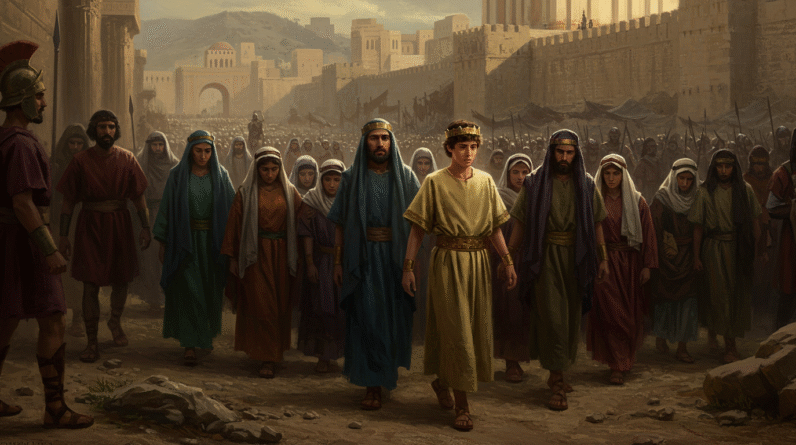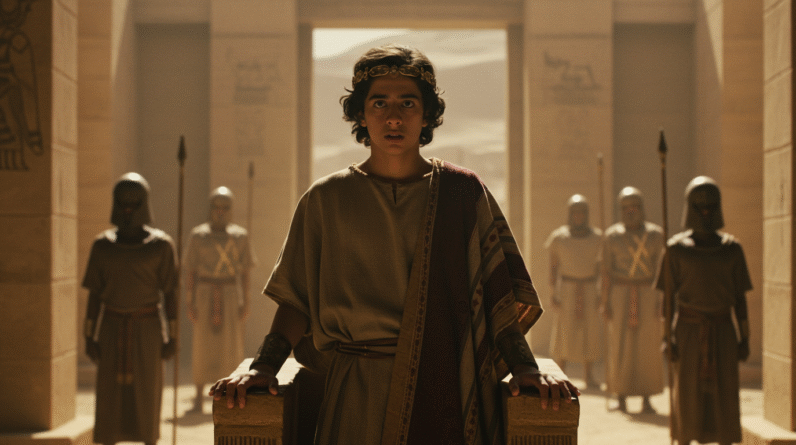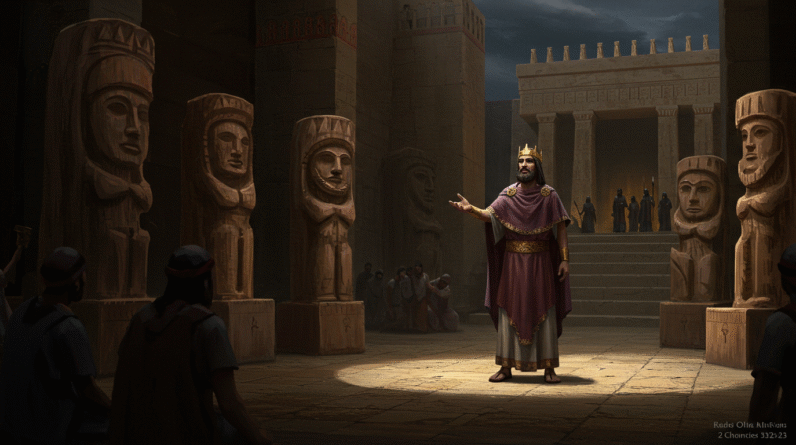Explore the turbulent reign of Ahaziah, Judah’s sixth king. Discover his alliances, leadership trials, and legacy in 2 Chronicles 22:1 and 2 Kings 8:25.
Ahaziah: Sixth King of Judah
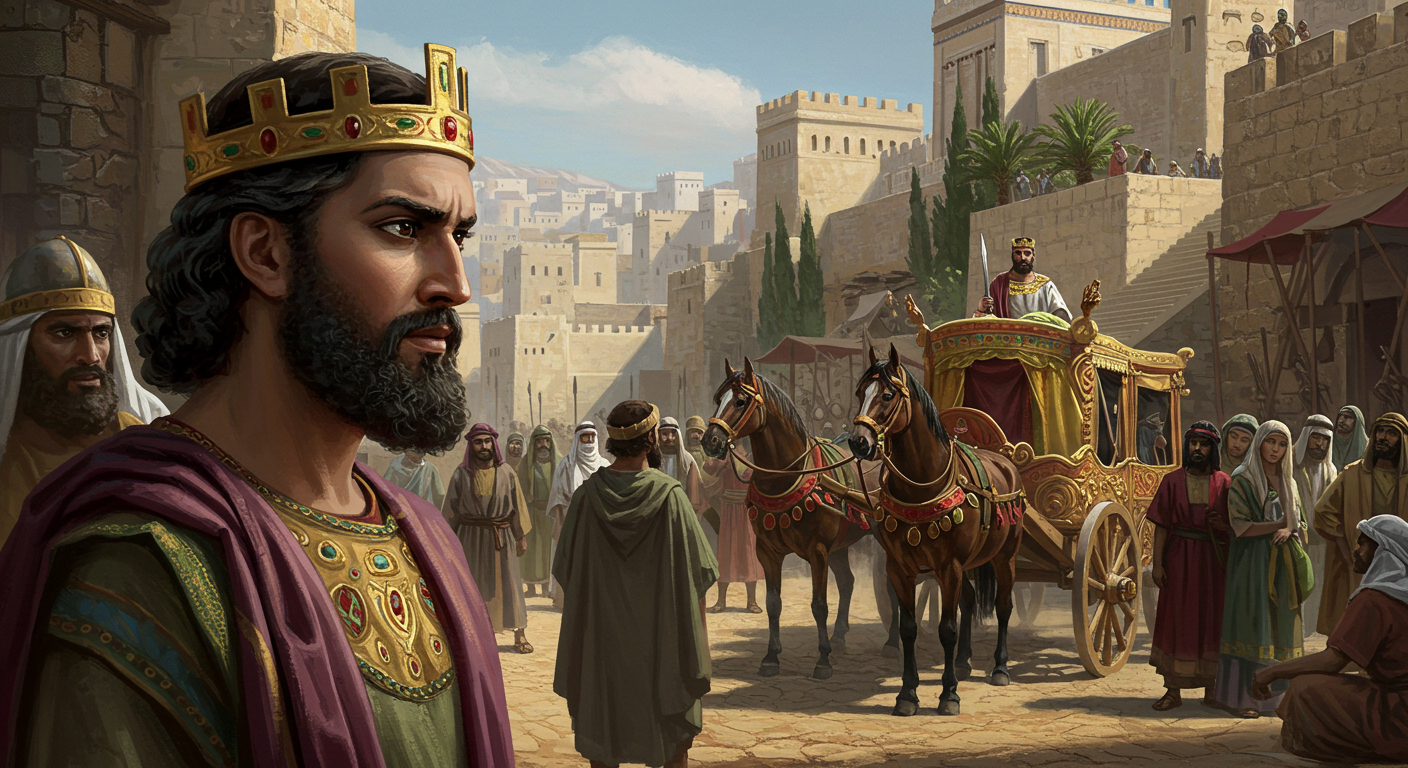
I. Introduction
Have you ever wondered what it means to be a leader caught between extraordinary expectations and human vulnerability? As individuals, we are frequently intrigued by those whose choices define significant historical and cultural shifts, especially those emerging from turmoil. Enter Ahaziah, the sixth king of Judah—a character whose brief yet impactful reign speaks volumes about the entanglements of power, alliance, and fate within a tumultuous world.
Ahaziah’s leadership is painted against the backdrop of a complex narrative in Israel’s history. His reign is documented primarily in 2 Chronicles 22:1 and 2 Kings 8:25. While his reign was short-lived, the implications of his decisions and alliances left considerable marks on the course of Judah’s history. This article delves into Ahaziah’s legacy and the lessons we can extrapolate from his story.
Ahaziah’s narrative demonstrates the multifaceted nature of leadership. His rule, fraught with challenges and conflicting loyalties, reflects the trials faced by many leaders today: navigating expectations, familial influences, and external threats in their quest to establish a lasting impact. Through comprehending Ahaziah’s life and reign, we gain valuable insights into leadership’s true substance.
II. Historical and Cultural Context
Israel in Ahaziah’s Time
Ahaziah’s reign was encapsulated within a period marked by political fragmentation, external aggressions, and pressing spiritual conflicts. This era of Judah’s history was notably driven by alliances and enmity, pivotal relations not only with neighboring Israel but also with dominant regional powers like Assyria and Egypt. Society was defined by tribal loyalties and religious practices that, at times, shifted in response to external influences or internal reformations—highlighting a spiritual dissonance in the kingdom.
Setting the Stage
Against this backdrop, Ahaziah emerged at a critical juncture, called upon as a leader to stabilize a kingdom amidst these swirling complexities. The prevailing conditions of political and spiritual uncertainty necessitated a ruler whose instincts could interpret the unfolding chaos while steering the kingdom toward peace and stability.
Ahaziah’s time stands as a reminder of the fluidity and fragility of leadership roles—etched from urgent calls for unity amidst adversity. The kingdom’s challenges paved the way for a leader whose decisions resonated beyond the immediate sphere, affecting spiritual fidelity and political fortitude.
III. Biographical Overview
Early Life and Calling
Ahaziah was born into a tumultuous royal environment, with a linchpin family that exerted a strong influence over his early life and formative experiences. As the son of Jehoram and Athaliah, Ahaziah’s upbringing was marred by political intrigue and familial expectations, later contributing to his intricate relationship with both political authority and religious adherence.
Through 2 Chronicles 22:2, we glimpse Ahaziah’s segue into leadership, an ascent underscored by familial connections rather than a distinct divine calling. This influence would shape his governance style, accentuating themes of allegiance and alliance over unilateral divine instruction.
Major Milestones and Events
Ahaziah’s reign was marked by defining moments, most prominently his alliances, which were destined to influence his political strategies and relationships with neighboring nations. Although his tenure was short, these alliances held significant consequences for Judah’s standing and its interactions within the broader geopolitical landscape.
- Alliance with Israel: His relations with Israel’s royalty, especially shared blood ties, become pivotal. They interlaced the political narratives of Judah and Israel, deepening intertwined destinies.
- Conflict Dynamics: Key battles and skirmishes during Ahaziah’s rule further accentuated these bondings, as seen in 2 Kings 8:28, pulling Judah deeper into the constructed webs of political impasse and shared burdens with Israel.
IV. Key Biblical Narratives and Passages
Primary Scripture References
Two key passages illuminate Ahaziah’s narrative within the biblical corpus. In 2 Chronicles 22:1-12, we see the intertwining of familial influence and political ascension, while 2 Kings 9:16-29 details Ahaziah’s alignment with Israel’s rulers and the tragic conclusion of his life.
These accounts offer profound insights into Ahaziah’s reign, depicting his alignments, battles, and untimely demise, which become foundational in understanding the short-lived but impactful nature of his leadership.
Contextual Analysis
Ahaziah’s entry into kingship brings to light a mix of spiritual and political dynamics, where alliances blur the line between divine guidance and strategic decisions. The theological themes reflect a kingdom in transition, grappling with defining loyalty and fate amidst external religious pressures and political entanglements.
V. Leadership Qualities and Challenges
Core Leadership Traits
Ahaziah’s leadership reveals nuances situated between familial allegiance and political dexterity. While bravery in alliances characterized his tenure, they simultaneously betrayed underlying dependencies rather than autonomous leadership.
Ahaziah’s decision to ally closely with his Israelite counterparts illustrates decisiveness, yet it highlights a vulnerability to familial influence rather than divine counsel or independent wisdom—a significant deviation from previous Judaean rulers led by prophetic guidance.
Challenges and Controversies
Controversy defined much of Ahaziah’s reign, with major challenges arising from his familial connections and political alliances. The precarious nature of these bonds manifested in decisions is often counterproductive to Judah’s own sovereign interests.
Ahaziah’s reliance on familial relations with Israelite leadership, a consequence of underlying trust and allegiance, only aided in intertwining Judah’s fate with pitfalls shared by neighboring Israel, eventually contributing to his downfall as documented in 2 Kings 9:27.
VI. Legacy and Impact
Immediate Impact
During his brief reign, Ahaziah’s actions chiefly perpetuated existing alliances and dependencies with Israel, embedding Judah more deeply within the shared geopolitical and spiritual narrative of the time. These relationships shaped Judah’s immediate historical trajectory, often mirroring Israel’s destiny rather than forging a distinct Judaean identity.
Long-Term Influence
The legacy of Ahaziah extends into the fabric of Judah revealing a cautionary tale about the implications of convoluted allegiances and neglected prophets. His reign serves as a testament to the significance of choosing alliances wisely and abiding by spiritual fortitude amidst political necessity.
Ahaziah’s story transcends his time, reflecting the ongoing struggle to balance leadership responsibilities with influences external and internal. It also underlines the enduring impact of ruling alliances on a nation’s spiritual and political identity.
VII. Scriptural and Scholarly Analysis
Comparative Analysis
Comparing the accounts in Chronicles and Kings illustrates differing portrayals. While Chronicles emphasizes familial influences and their resulting quandaries (2 Chronicles 22:4), Kings focuses on more detailed accounts of his alliances (2 Kings 9:27), showcasing the unfolding of divine judgment intertwined with human agency.
Theological Implications
Ahaziah’s reign prompts discussions on divine destiny versus human choice. Biblical scholars often debate the extent of divine orchestration versus political pragmatism guiding Judaean kings. His alliances highlight the precarity of securing leadership not rooted in prophetic counsel but in political ties, offering messages pertinent to both ancient and modern vistas of governance.
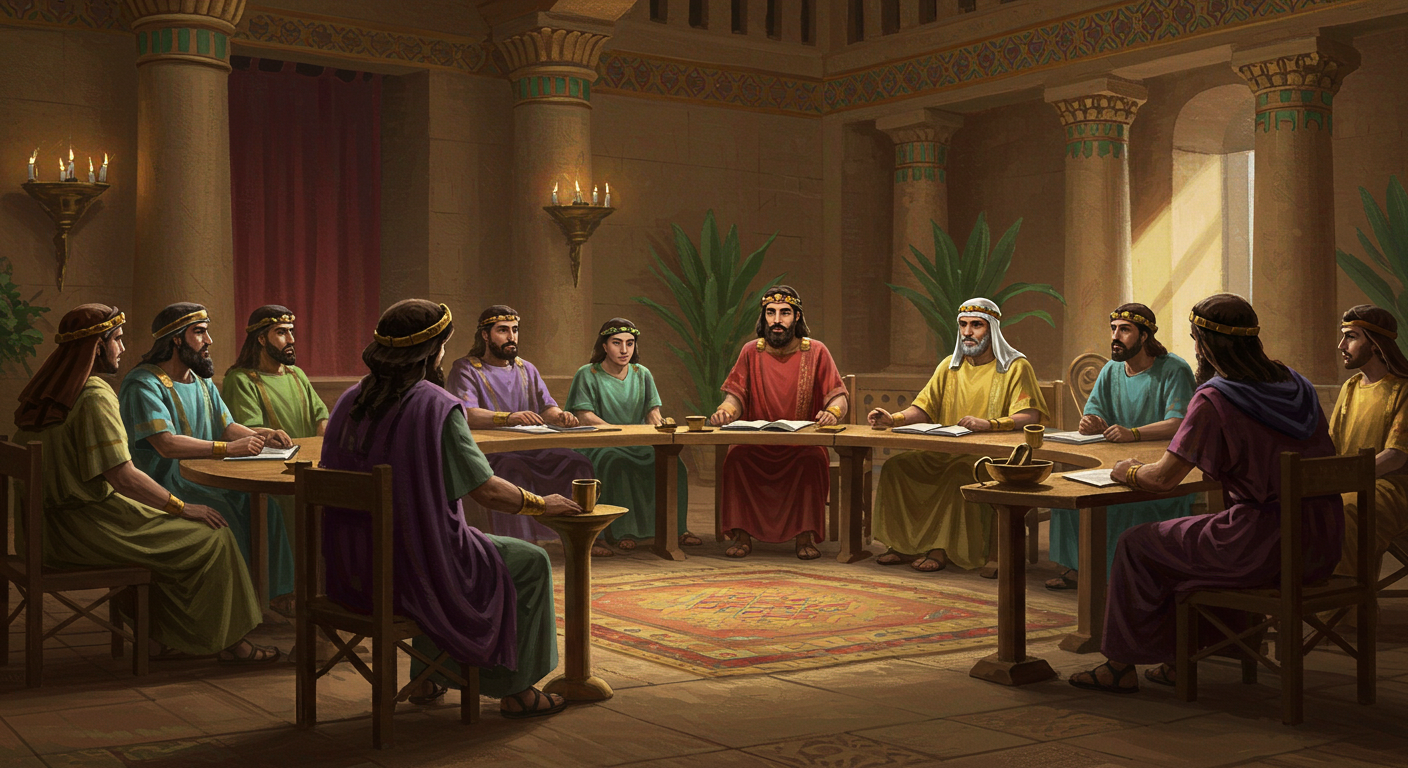
VIII. Conclusion
Ahaziah’s tenure, while brief, marks a consequential chapter in Judah’s history, standing as a symbol of the intricate dance between influence, allegiance, and rulership. His story illustrates the manifold challenges leaders face, embedded in a complex web of alliances and familial expectations.
Reflecting on Ahaziah’s multifaceted legacy reminds us of the leadership intricacies of divine will, political acumen, and human fallibility, with resonances for modern contexts of governance and spiritual fidelity.



